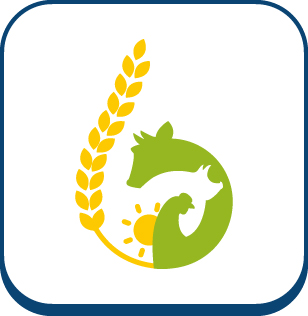Characterization of the genomic diversity of S. Typhimurium and its monophasic variant in France in pig herds
Ajouter à ma liste
Auteurs :
De Sousa Violante M, Feurer C, Michel V, Radomski N, Mistou MY, Mallet L
Salmonella is one of the most common bacterial pathogen worldwide in human and animal infections, leading to 52,702 cases of human gastroenteritis in Europe in 2020 [1]. To provide new insights on Salmonella epidemic investigations, whole genome sequencing (WGS) methods have been developed, especially focusing on detection of outbreaks and estimation of genetic relationships between isolates [2,3]. Salmonella Typhimurium and its monophasic variant are one of the most prevalent serovar [4], and represents 60% of Salmonella serovar detected in pig and pork in France [5]. Even if this serovar is well studied, its spreading has not been investigated on the scale of French pig farms, in order to understand whether adaptation mechanisms are linked to geography.
Here, we characterized the genomic diversity of 188 S. Typhimurium and its monophasic variant isolated in France from pig herds at the slaughterhouse, using WGS methods. In order to investigate the genome, we detected SNPs using a pangenome-based workflow aiming at evaluating the entire genome of bacterial samples, including accessory genome fractions not shared by all samples. We also performed two approaches aiming at identifying conserved genes and mutations. While the first approach targets known genes based on Abricate [6] and the database MEGARESv2, Resfinder and VFDB, the second approach refers to an in-house algorithm computing sensitivity, specificity and accuracy of accessory genes and core variants according to predefined groups of genomes.
This study bought to light news insights of S. Typhimurium and its monophasic variant, which have never been studied at this geographic scale in France. The core and pan-genome phylogenomic analyses revealed a low diversity within monophasic variant of Typhimurium strains, between regions, suggesting a unique clone spreading within pig herds in France. Resistance determinants were found while screening at the gene level, including antibiotics, heavy metals and biocides that could explain the prevalence of these strains within herds. Screening of accessory genes and core variants through an in-house algorithm allowed identification of conserved mutations to identify without any a-priori genetic markers supporting food safety surveillance. A comparison with monophasic variant isolates from other countries highlighted the genomic specificity of monophasic variant in France, with some exceptions of isolates from bordering countries. This work provided news insights on the dynamics of S. Typhimurium and its monophasic variant sampled in pig herds in France.
Fiche technique
Titre :
Characterization of the genomic diversity of S. Typhimurium and its monophasic variant in France in pig herds
Date sortie / parution :
2022
Référence :
Jobim 2022, 5-8 juillet 2022, Rennes








